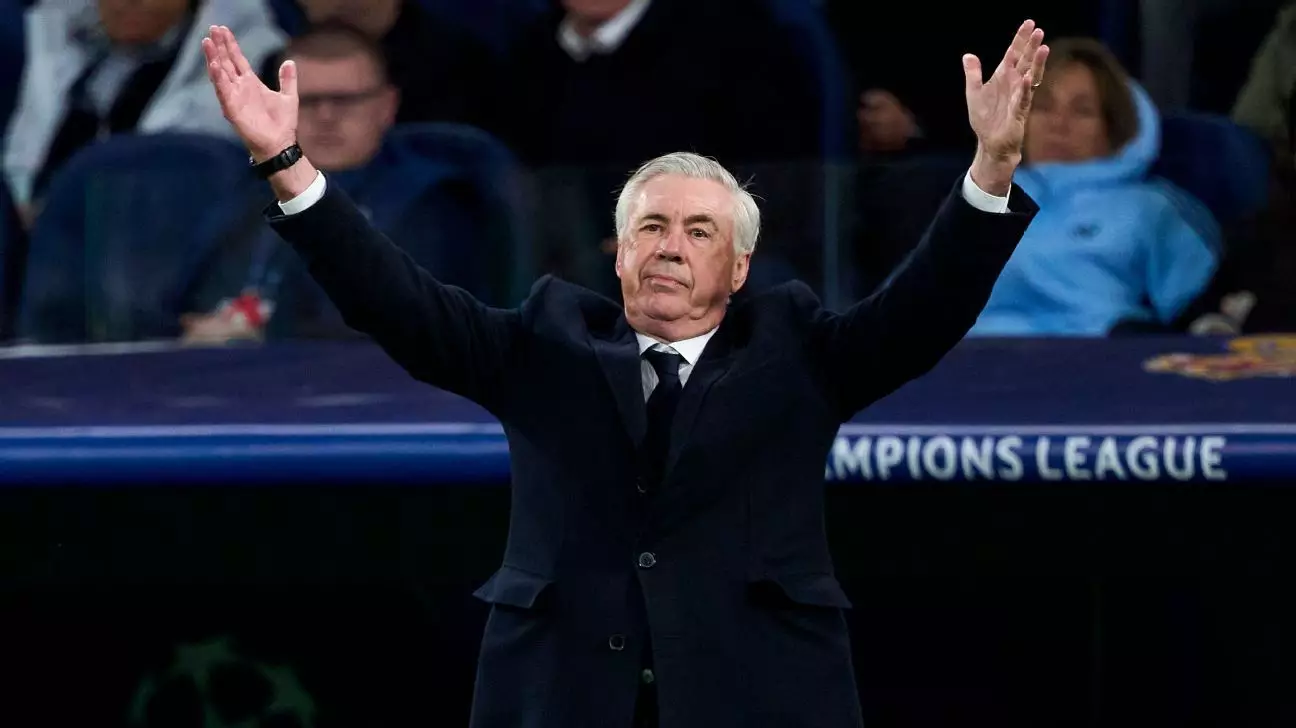Resilience Amidst Setbacks: The Future of Real Madrid Under Ancelotti
As a long-time admirer of Real Madrid, I cannot help but feel the emotional rollercoaster that comes with each season. This year, the club’s early exit from the Champions League at the hands of Arsenal has been particularly disheartening. The quarterfinal loss with a 5-1 aggregate defeat wasn’t just surprising; it felt like a punch to the gut for fans everywhere. Watching the first leg end in a 3-0 away loss made my heart sink, and when Bukayo Saka scored for Arsenal, it was as if he’d dashed all hopes in one swift move.
Carlo Ancelotti, with his rich history at Real Madrid, now stands at a critical crossroads. As he reflected on the match, his uncertainty was palpable, leaving many of us wondering about his future at this storied club. With his contract running until 2026, it’s hard not to speculate on whether this marks the beginning of a new chapter or the end of an era. It’s not just about tactics; it’s about a legendary coach grappling with the reality of high expectations and a squad that seems to be in transition.
For fans like me who live and breathe football, these moments are more than just statistics—they strike at the heart of what it means to be part of something bigger. The challenge now is how Ancelotti and Real Madrid will navigate this tumultuous period and emerge stronger on the other side.
Key Takeaways
- The recent Champions League exit has raised questions about Ancelotti’s future at Real Madrid.
- Team dynamics and tactical execution have come under scrutiny this season.
- The upcoming matches will be crucial for redemption and reshaping the club’s direction.
Analyzing the Teams Shortcomings
The criticism directed at Ancelotti isn’t without basis. Despite his stellar track record, this season has exposed vulnerabilities in Real Madrid’s armor. Notably, their two heavy defeats to arch-rivals Barcelona have left fans questioning whether Ancelotti still holds the tactical edge he once did. The club’s history is steeped in relentless ambition, yet now it seems to be teetering under scrutiny. How does a team that was victorious in this very competition just last year find itself struggling so much now?

Thibaut Courtois, a stalwart presence in goal for Madrid, articulated what many fans are feeling. It wasn’t just about tactics; it was about failing to gel as a cohesive unit. Football thrives on individual brilliance, but that brilliance must translate into team success. This season highlighted the absence of a natural center forward—a gap that became glaringly apparent compared to last year when Joselu was available to seize opportunities. Without him, relying solely on midfield creativity without a finisher has stunted Madrid’s attacking prowess.
The Turning Point Missed Opportunities
Ancelotti pointed out pivotal moments that could have turned the tide for Madrid—like an overturned penalty decision that might have altered the game’s dynamics entirely. Such “what-ifs” are as much a part of football as they are frustrating reminders of missed chances. While it’s easy to lament what could have been, these moments expose fundamental weaknesses in a team that should thrive under pressure. Even if the penalty had gone their way, it’s clear that capitalizing on opportunities is where they faltered most.
The disconnect between player intentions and tactical execution raises further questions about alignment within the squad. Are all players united in purpose? Courtois’ call for unity over individualism underscores a fundamental issue within squad chemistry—one that could spell disaster if not addressed promptly. For an institution like Real Madrid, such fragmentation isn’t just concerning; it’s potentially catastrophic.
The Road Ahead A Crucial Juncture
With focus shifting to LaLiga and Copa del Rey, upcoming clashes against teams like Athletic Club and Barcelona will test both character and resolve. The Copa del Rey final stands out as particularly significant—a failure here could trigger serious reevaluation within management ranks. Can Ancelotti rally his players for one last push? Or has mounting criticism eroded their resolve beyond repair?

The stakes couldn’t be higher for Real Madrid right now. Ancelotti’s future depends not only on tactical acumen but also on inspiring a team seemingly in turmoil. These upcoming matches aren’t just games; they’re battlegrounds where the club’s very soul must fight for survival and resurgence. Rediscovering resilience is key to returning to greatness—a path defined by legend and glory hangs precariously in balance.
Final Thoughts
As fans watch anxiously from around the world, we hope for nothing less than a triumphant return to form for Real Madrid under Carlo Ancelotti’s guidance—or perhaps someone new if circumstances dictate change is necessary sooner rather than later! Yet through every setback lies opportunity—to learn grow stronger more resilient than ever before because ultimately true victory stems from overcoming adversity together hand-in-hand with unwavering support behind each player coach alike striving towards shared goals unyielding determination spirit unbreakable bond forged over decades triumphs trials alike proving once again why they’re truly legendary among giants global stage where dreams born realized against odds stacked high defied by sheer will grit unmatched anywhere else seen felt lived breathed hearts millions worldwide forever proud call themselves madridistas!
Real Madrid
Carlo Ancelotti
Champions League
Football Tactics
Team Dynamics


Leave a Reply